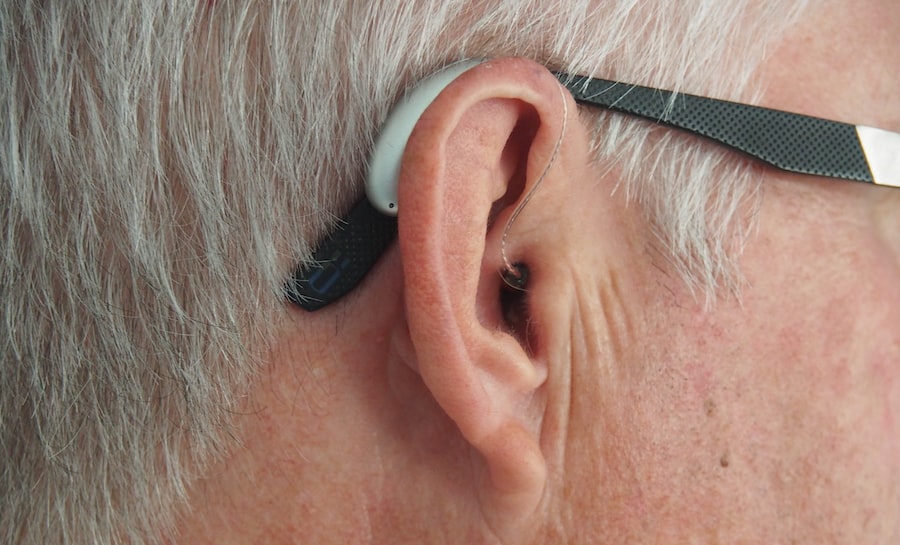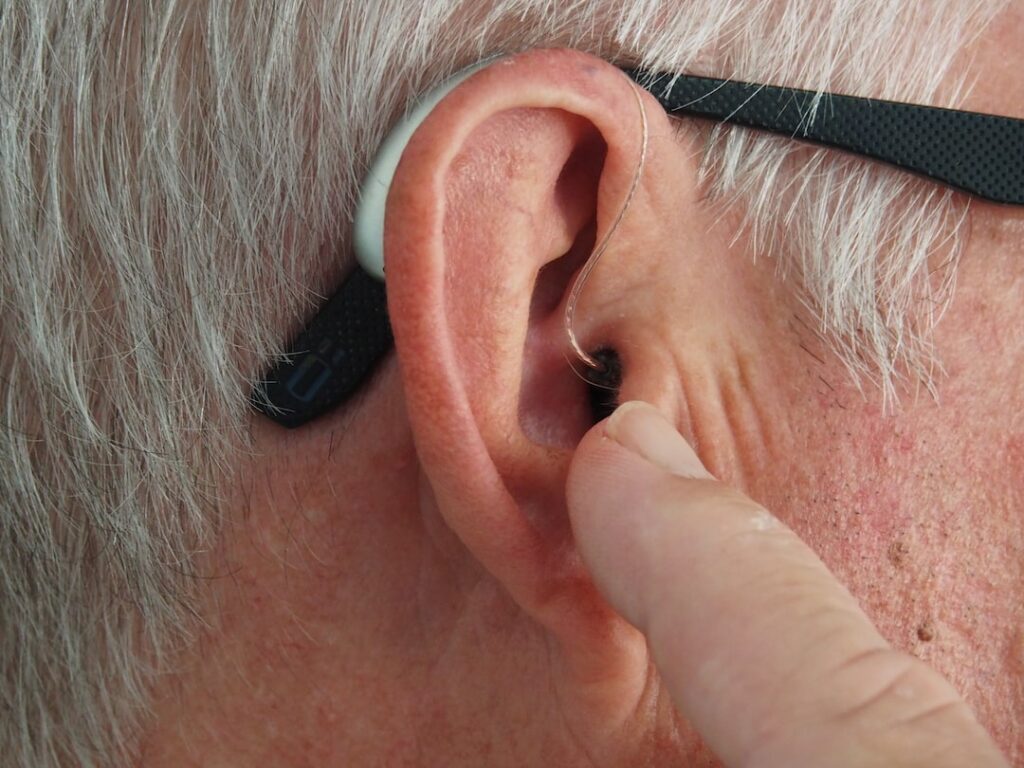Hearing is one of our most important senses, allowing us to communicate, navigate our surroundings, and enjoy the sounds of the world around us. However, hearing loss can have a significant impact on our daily lives, affecting our ability to communicate effectively and participate fully in social activities. It is estimated that over 466 million people worldwide have disabling hearing loss, and this number is expected to increase in the coming years. In this article, we will explore the different types and causes of hearing loss, the importance of hearing protection, tips for preventing hearing loss, the benefits of regular hearing check-ups, available hearing solutions and devices, how to find a qualified audiologist, and the importance of hearing protection in the workplace.
Understanding Hearing Loss
Hearing loss is defined as a partial or total inability to hear sounds in one or both ears. There are three main types of hearing loss: conductive, sensorineural, and mixed. Conductive hearing loss occurs when there is a problem with the outer or middle ear that prevents sound from reaching the inner ear. This can be caused by conditions such as ear infections, fluid buildup, or blockages. Sensorineural hearing loss is caused by damage to the inner ear or auditory nerve and is often permanent. It can be caused by factors such as aging, exposure to loud noise, genetics, or certain medical conditions. Mixed hearing loss is a combination of both conductive and sensorineural hearing loss.
Symptoms of hearing loss can vary depending on the type and severity of the condition. Common symptoms include difficulty understanding speech, asking others to repeat themselves frequently, turning up the volume on electronic devices, withdrawal from social activities, and ringing or buzzing in the ears (tinnitus). If you are experiencing any of these symptoms, it is important to seek medical attention from an audiologist or other healthcare professional.
Causes of Hearing Loss
There are several factors that can contribute to hearing loss. Age-related hearing loss, also known as presbycusis, is the most common cause of hearing loss in adults. It occurs gradually over time as the sensory cells in the inner ear become less responsive to sound. Noise-induced hearing loss is another common cause, and it can occur from exposure to loud noises over an extended period of time or from a single exposure to an extremely loud noise. Genetics can also play a role in hearing loss, with certain genetic mutations increasing the risk of developing the condition. Other medical conditions, such as ear infections, tumors, or diseases like Meniere’s disease, can also lead to hearing loss. Additionally, certain medications, such as certain antibiotics or chemotherapy drugs, can have ototoxic effects and damage the inner ear.
Importance of Hearing Protection
While some causes of hearing loss are unavoidable, there are steps that can be taken to prevent or minimize the risk of hearing loss. One of the most effective ways to protect your hearing is by using hearing protection in noisy environments. Exposure to loud noises, whether it be from machinery, concerts, or firearms, can cause permanent damage to the delicate structures of the inner ear. By wearing earplugs or earmuffs, you can reduce the intensity of sound reaching your ears and protect your hearing.
There are various types of hearing protection available, depending on your needs and preferences. Foam earplugs are a popular choice as they are inexpensive and readily available. They can be inserted into the ear canal to create a seal and block out noise. Earmuffs are another option and provide a physical barrier between your ears and loud sounds. They are often used in industrial settings or for shooting sports. There are also custom-made earplugs available that are molded to fit your ears perfectly for maximum comfort and effectiveness.
Tips for Hearing Loss Prevention
In addition to using hearing protection in noisy environments, there are other steps you can take to prevent hearing loss. Avoiding loud noises whenever possible is one of the most effective ways to protect your hearing. If you know you will be in a loud environment, such as a concert or sporting event, consider wearing earplugs or earmuffs. Taking breaks from noisy environments can also help give your ears a rest and reduce the risk of damage. If you listen to music through headphones or earbuds, keep the volume at a moderate level and limit your listening time. It is also important to be aware of the volume levels in your everyday environment, such as when watching television or using electronic devices, and keep the volume at a safe level.
Regular Hearing Check-ups

Regular hearing check-ups are an important part of maintaining good hearing health. Just as you would visit the dentist for regular check-ups or have your eyes examined by an optometrist, it is recommended to have your hearing tested by an audiologist on a regular basis. This is especially important if you are experiencing any symptoms of hearing loss or if you have been exposed to loud noises on a regular basis.
The frequency of hearing check-ups can vary depending on your age and risk factors for hearing loss. For adults, it is generally recommended to have a hearing test every three to five years. However, if you are over the age of 50 or have a history of noise exposure or other risk factors, more frequent testing may be necessary. Children should have their hearing tested at birth and then regularly throughout childhood.
During a hearing test, an audiologist will evaluate your ability to hear different frequencies and volumes of sound. This is typically done using headphones and a series of tones played at different frequencies. The results of the test will provide information about the type and severity of any hearing loss and help guide treatment options if necessary.
Hearing Solutions and Devices
If hearing loss is detected during a hearing test, there are several options available to help improve communication and quality of life. The most common solution for hearing loss is the use of hearing aids. Hearing aids are small electronic devices that are worn in or behind the ear and amplify sound to make it easier to hear. They can be programmed to suit individual hearing needs and can be adjusted as needed. Hearing aids come in a variety of styles and sizes, from behind-the-ear models to completely-in-the-canal models.
For individuals with severe to profound hearing loss who do not benefit from hearing aids, cochlear implants may be an option. Cochlear implants are surgically implanted devices that bypass the damaged parts of the inner ear and stimulate the auditory nerve directly. They can provide a sense of sound for individuals who are unable to benefit from traditional hearing aids.
Assistive listening devices are another option for individuals with hearing loss. These devices can be used in conjunction with hearing aids or on their own to improve communication in specific situations. Examples of assistive listening devices include amplified telephones, captioned telephones, and personal FM systems.
Finding an Audiologist Near You
When it comes to your hearing health, it is important to find a qualified audiologist who can provide the necessary care and support. An audiologist is a healthcare professional who specializes in the diagnosis and treatment of hearing loss and other auditory disorders. They have extensive training and expertise in evaluating hearing function, fitting hearing aids, and providing counseling and support for individuals with hearing loss.
There are several resources available to help you find an audiologist near you. One option is to ask your primary care physician for a referral. They may have a list of trusted audiologists in your area. You can also check with your insurance provider to see if they have a list of preferred providers or if they cover the cost of hearing evaluations and treatments. Additionally, professional organizations such as the American Academy of Audiology or the American Speech-Language-Hearing Association have online directories that allow you to search for audiologists by location.
Hearing Protection at Work
Hearing protection is not only important in recreational settings but also in the workplace. Occupational hearing loss is a common workplace injury, and employers have a responsibility to provide a safe working environment and protect their employees’ hearing. This can include implementing engineering controls to reduce noise levels, providing hearing protection devices, and educating employees about the importance of hearing protection.
Employers should conduct regular noise assessments to identify areas of high noise exposure and take steps to reduce noise levels whenever possible. This can include installing sound barriers, using quieter machinery, or implementing administrative controls such as limiting the amount of time employees spend in noisy areas. If noise levels cannot be adequately reduced, employers should provide hearing protection devices such as earplugs or earmuffs and ensure that employees are trained on how to properly use and care for them.
Employees also have a responsibility to protect their own hearing in the workplace. This includes wearing hearing protection devices when required, following safety protocols, and reporting any concerns about noise levels or potential hazards to their employer. By working together, employers and employees can create a safe and healthy work environment that protects hearing.
In conclusion, hearing is a vital sense that plays a crucial role in our daily lives. Hearing loss can have a significant impact on our ability to communicate and participate fully in social activities. While some causes of hearing loss are unavoidable, there are steps that can be taken to prevent or minimize the risk of hearing loss. This includes using hearing protection in noisy environments, avoiding loud noises whenever possible, taking breaks from noisy environments, and limiting exposure to loud music. Regular hearing check-ups are also important for maintaining good hearing health and detecting any signs of hearing loss early on. If hearing loss is detected, there are various solutions and devices available to help improve communication and quality of life. By taking action to protect our hearing and seeking help if experiencing hearing loss, we can ensure that we continue to enjoy the sounds of the world around us for years to come.
If you’re looking for expert advice on hearing loss prevention in Kuantan, you won’t want to miss this article on “The Sound Solution: Unveiling the Top Audiologist in Malaysia.” This informative piece, available at https://hearcaremalaysia.com/the-sound-solution-unveiling-the-top-audiologist-in-malaysia/, highlights the top audiologists in the country and provides valuable insights into how they can help you protect your hearing. Don’t miss out on this essential resource from Hear Care Malaysia. For more information on hearing loss prevention, be sure to check out their website at https://hearcaremalaysia.com/.
FAQs
What is hearing loss prevention?
Hearing loss prevention refers to the measures taken to protect one’s hearing from damage or deterioration caused by exposure to loud noises or other factors.
What are the common causes of hearing loss?
The most common causes of hearing loss include exposure to loud noises, aging, genetics, infections, and certain medications.
How can I prevent hearing loss?
You can prevent hearing loss by avoiding exposure to loud noises, wearing earplugs or earmuffs in noisy environments, taking breaks from loud noises, and maintaining good ear hygiene.
What are the signs of hearing loss?
The signs of hearing loss include difficulty understanding speech, asking people to repeat themselves, turning up the volume on the TV or radio, ringing in the ears, and feeling like others are mumbling.
Can hearing loss be reversed?
In some cases, hearing loss can be reversed with medical treatment or surgery. However, in most cases, hearing loss is permanent and cannot be reversed.
What should I do if I suspect I have hearing loss?
If you suspect you have hearing loss, you should schedule an appointment with an audiologist or hearing healthcare professional for a hearing evaluation. They can determine the extent of your hearing loss and recommend appropriate treatment options.

